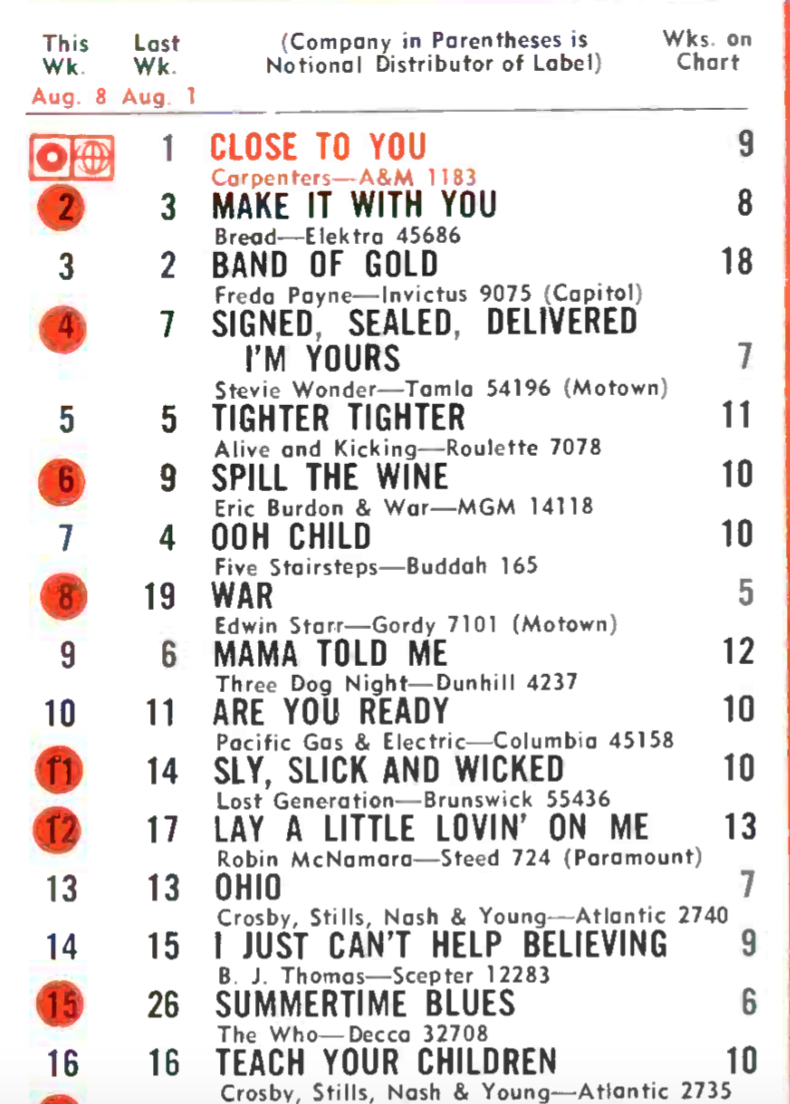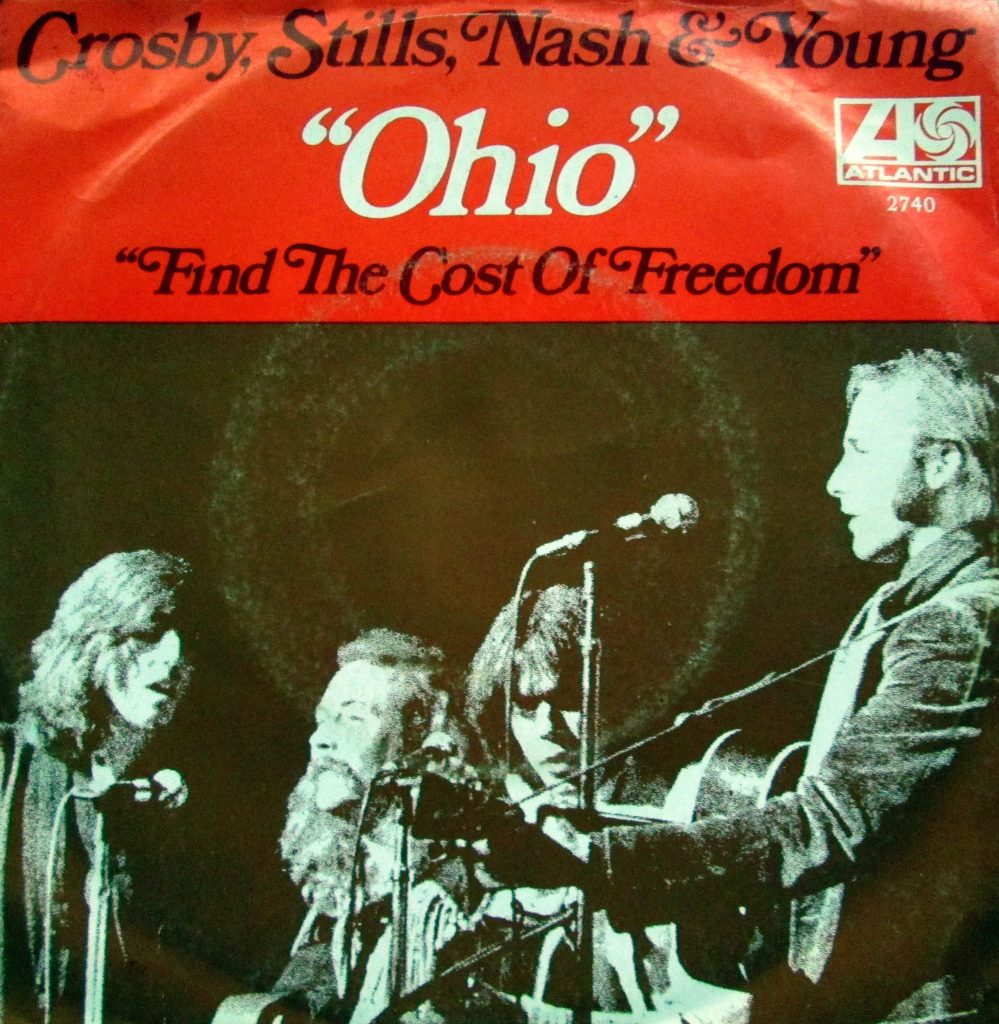Historical
See other Historical Articles
Title: May 4, 1970: Kent St. Deaths Inspire CSNY’s ‘Ohio’
Source:
Best Classic Bands
URL Source: https://bestclassicbands.com/csny-ohio-5-4-177/
Published: May 4, 2019
Author: Staff
Post Date: 2019-05-04 08:26:08 by Deckard
Ping List: *Music* Subscribe to *Music*
Keywords: None
Views: 383
Email “Four dead in Ohio” is not the kind of lyric you’d expect to find in a hit single. Yet those words were crucial to “Ohio,” the song written by Neil Young following the horrific Kent State University massacre of May 4, 1970, in which four students were shot dead by the Ohio National Guard. Recorded by Crosby, Stills, Nash and Young, “Ohio” was released as a single in late June, backed with Stephen Stills’ “Find the Cost of Freedom.” On June 27 it had entered the U.S. Record World chart at #67, ultimately peaking at #13 on Aug. 1 (#14 in Billboard). Record World’s Aug. 8 “100 Top Pops” chart shows the two CSNY singles near the top To put the timing in some perspective, CSNY had released their first album as a quartet, Déjà Vu, on March 11. Its first single, “Woodstock,” had been released in March. The follow-up, “Teach Your Children,” came out in May. “Ohio” was essentially an “instant single,” which Record World described as “a document of our times.” Despite – or perhaps because of the significant attention to the events of May 4 – both singles flourished simultaneously on Top 40 radio. Although he was Canadian by birth, Young, like so many others in America and around the world, was appalled at the news of the college campus shootings. He’d heard about the students’ protest against the Vietnam War and the Guard’s wanton disregard for those students’ rights and lives. It was later revealed that 29 Guardsmen fired 67 rounds in just 13 seconds, killing the four students and wounding 10 others. Young wrote: “Tin soldiers and Nixon coming, we’re finally on our own/This summer I hear the drumming, four dead in Ohio.” The verse was sung twice, as was the chorus: “Gotta get down to it, soldiers are cutting us down/Should have been done long ago/What if you knew her and found her dead on the ground/How can you run when you know?” Recorded live in just three takes, with the rhythm section of bassist Calvin Samuels and drummer John Barbata, “Ohio” spoke to a generation growing increasingly angry and more frustrated over the escalation of the war. Some radio stations banned the record, particularly those in areas of the country where support of the war and President Nixon outweighed that of the opposite sentiment. Nonetheless, “Ohio” is now considered a classic protest song of the era. It appeared in a live version on the group’s 4 Way Street album and has been included on several complatoins. It was selected as the 395th greatest song of all time by Rolling Stone in 2004, and in 2009, it was inducted into the Grammy Hall of Fame. Watch CSNY perform “Ohio” in 1971 
Post Comment Private Reply Ignore Thread
[Home] [Headlines] [Latest Articles] [Latest Comments] [Post] [Mail] [Sign-in] [Setup] [Help] [Register]


